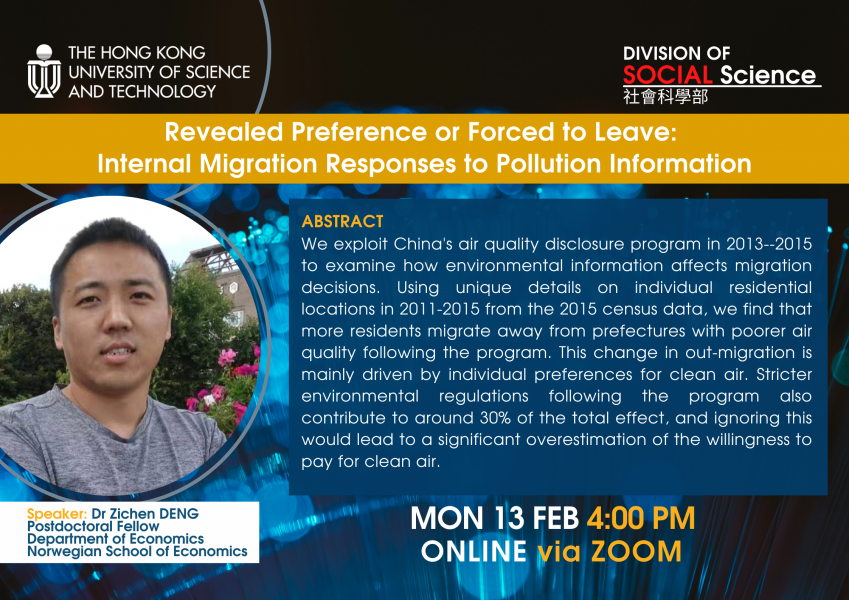We exploit China's air quality disclosure program in 2013--2015 to examine how environmental information affects migration decisions. Using unique details on individual residential locations in 2011-2015 from the 2015 census data, we find that more residents migrate away from prefectures with poorer air quality following the program. This change in out-migration is mainly driven by individual preferences for clean air. Stricter environmental regulations following the program also contribute to around 30% of the total effect, and ignoring this would lead to a significant overestimation of the willingness to pay for clean air.
<p><span lang="EN-US"><span><span><span>Zichen Deng is a postdoctoral fellow in the economics department and an affiliate at the FAIR Centre, both at the Norwegian School of Economics (NHH). My current research focuses on the short-term and long-term consequences of environmental/public health policies. These projects contribute to several fields, including environmental, health, and development economics. To answer questions that the literature has rarely studied, I often combine statistics tools that are state of the art (causal inference, machine learning, and text analysis) with novel data sets (for instance, satellite data and large administrative data).</span></span></span></span></p>
<p> </p>
<p><strong>Remarks</strong></p>
<p><strong>- ZOOM link will be sent via email, for HKUST members ONLY </strong></p>
<p><strong>- Please use your HKUST ITSC account to join the zoom meeting.</strong></p>
<p><strong>- This meeting is being recorded. By joining, you are giving consent for this meeting to be recorded.</strong></p>

